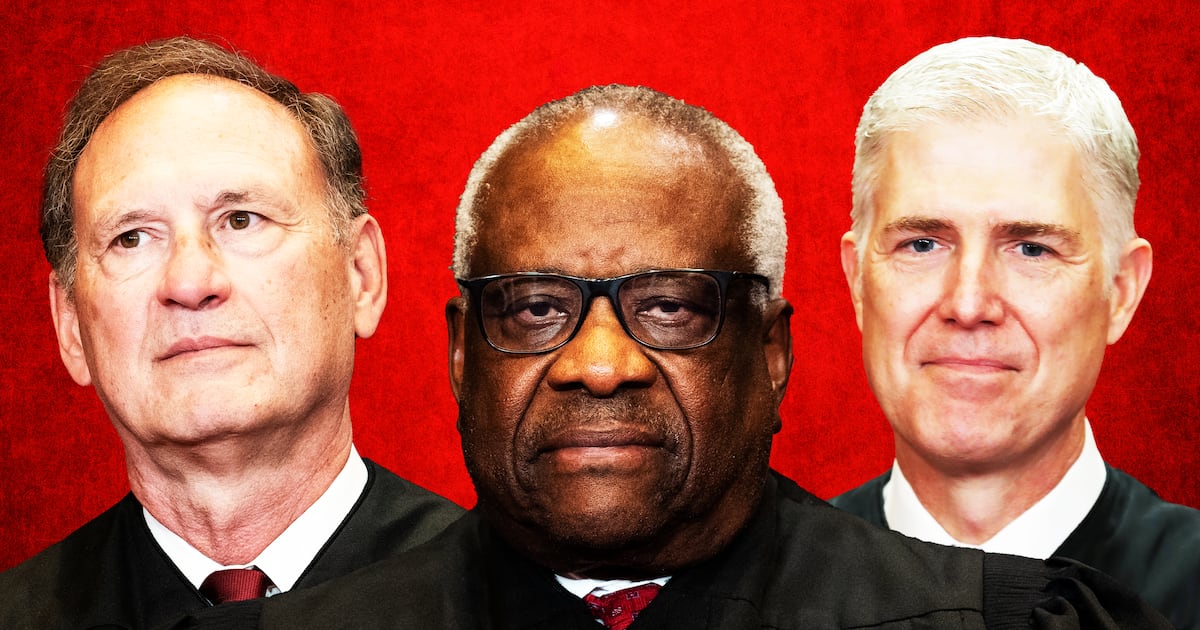Before meeting Johann Hari recently, my last encounter with the English political writer had been in 2004 outside the Royal Geographic Society in South Kensington, London, when he had bumped into Christopher Hitchens.
The Hitch had just finished speaking at a debate on U.S. foreign policy, along with Gary Hart, and the meeting of Hitchens and Hari had stayed with me as it seemed to represent a coming together of different generations of independent left-wing polemicists.
Hari was then a high-profile columnist on London newspaper The Independent and, though far less iconoclastic than Hitchens, in his mid-20s had enjoyed a swift rise to the political punditry stage.
ADVERTISEMENT
In 2012 the curtain came down for Hari when he left The Independent under a roiling storm cloud after being suspended for plagiarism and for tampering with the Wikipedia entries of fellow writers he disliked.
He was suspended from The Independent after a protracted plagiarism compounded by the fact he had doctored the Wikipedia entries of his then-enemies who included the writers Nick Cohen, Cristina Odone, and Andrew Roberts, and had to return his Orwell Prize, the most prestigious prize in British political journalism. Hari has not written for a UK newspaper subsequently.
As with Jonah Lehrer, the new forms of technology that accelerated Hari’s ascent sealed his fate by revealing that not all his words published under his name were his own.
In between the scandal breaking and Hari leaving The Independent, he attended journalism school in New York, although—for now at least—Hari, 35, has waved goodbye to an unsympathetic Fleet Street and spent the last three years researching and writing a book, Chasing the Scream: The First and Last Days of the War on Drugs.
In Chasing the Scream, Hari has taken a long-held conviction expressed through his columns—the destructive futility of the “War on Drugs”—and fleshed it out with extensive reportage and analysis. The phrase was coined by President Richard Nixon in 1971, and describes the hardline government prohibitive policy against drugs that costs the government over $50 billion a year.
Hari writes about encounters with transsexual crack dealers, junkies, and former police chiefs, and visits Portugal to see the effects of decriminalization and Tent City, an Arizona prison where the “War on Drugs” is at its most extreme (and ineffective).
While books about drugs can often be even more boring than the musings at parties of some of the people on them, Hari has avoided this fate by writing a sweeping, sprawling account of the subject.
The book is informative and eclectic. Hari argues the War on Drugs perpetuates narcotic addiction rather than prevents it. Prison and rehab, he argues further, disconnects addicts from society.
“Almost everything we think we know about drugs is wrong,” he tells me when we meet in a restaurant in Manhattan’s Upper West Side. “Drugs aren’t what we think they are, addiction isn’t what we think it is, and the drug war is not what we’ve been told it is,” he says.
Most drugs aren’t overwhelmingly addictive, he says by way of explanation. “If you or me step out into 79th Street now and we’re hit by a car and we break our hip we’ll be taken to hospital and it’s likely we’ll be given a lot of diamorphine. Diamorphine is heroin, much better heroin than you’ll score on the streets because it’s medically pure. If what we think about addiction is right, those people should leave hospital as addicts and they should have that physical need for the drug. That virtually never happens.”
Isolation and childhood trauma trigger more consequential addictions than the chemical power of drugs, he says. Central to his argument is Canadian psychologist Bruce Alexander’s Rat Park experiment, in which rats in pleasurable surroundings drank less than a quarter of drugged water compared with caged rats.
For a century, Hari believes, the U.S. government has been persuaded that tough prohibition is the way forward to combating drug use to disastrous effect.
“It [their approach] worsens addiction by punishing and stigmatizing addicts, and it means drug users are much more likely to die because they’re getting contaminated drugs,” he says. “But the absolute worst is what we do to people on the supply routes and the transfer of this massive industry into criminal gangs.”
Perhaps Hari’s most powerful case study is when he revisits the campaign conducted against jazz singer Billie Holiday by Harry Anslinger, commissioner of the Federal Bureau of Narcotics.
During the 1930s and ’40s Anslinger, America’s first drug czar and in search of a high-profile scalp, instructed agents to target Holiday, who battled a heroin addiction. Interviews with Holiday’s friends reinforce Hari’s suspicion that Anslinger’s crusade was racially motivated compared with the more tolerant approach authorities adopted for celebrity drug users such as Judy Garland.
Hari himself experimented with ecstasy and cocaine and was addicted to the anti-narcolepsy drug Provigil. Why is he so interested in writing about narcotics? “We had drug addiction in my family,” he replies. “One of my earliest memories was trying to wake up one of my relatives and not being able to and obviously as I got older realizing why.”
The fact a close relative (he doesn’t specify who) was addicted to drugs formed a picture in his mind and he’s been trying to connect the dots ever since.
Yet he looks to the recent votes to legalize marijuana in Colorado and Washington state (to which President Obama recently offered his tacit support) as evidence that the political wind is blowing toward his side. “When people see it [legalization] in practice, they support it much more,” he says. “You now have a majority supporting legalization of marijuana in the U.S. That’s an extraordinary transformation.”
The potential increase in societal disorder and unrest arising from legalization has been overstated, he believes. Globally he points to Portugal, Switzerland, and Uruguay decriminalizing drugs without too much fuss.
Hari—who is gay and currently single—compares the drug legalization movement to gay marriage: “The pro-gay position at the time of the Stonewall Riots was to say that gay people were not evil but sick. It didn’t even occur to the drag queens [protesting at Stonewall] or the tiny number of people who supported them to ask for gay marriage because it seemed like saying they wanted to live on Mars. Some of those people lived to see the introduction of gay marriage in the U.S. Things change incredibly quickly if you’re organized, appeal to people’s decency, and you’ve got right on your side.”
Hari is on the left of the political spectrum, but with Chasing the Scream he’s picking up friends in unlikely places. “Some of the most articulate and intelligent people on the drug war in the United States are libertarian right-wingers,” he tells me. “This is not a left-right issue. I got contacted by [Senator] Rand Paul’s office saying he really liked the book and I met his staffers.”
With Chasing the Scream on the New York Times bestseller list, it’s tempting to draw the obvious conclusion that this amounts to rehabilitation for Hari himself following his public scandal.
Though Hari now takes complete culpability for his actions, he resists publicly examining the causes of his downfall. “I think when you fuck up, as I did very badly, you should encourage people to see it from the point of view of the people who you harmed, not from your own point of view,” he says.
“The people whose point of view the story should be seen from are The Independent, who deserved better, The Independent readers, who deserved me to accurately convey the conversations that I had rather than use things people had said elsewhere, and the people I was nasty about on Wikipedia. “
While taking the blame (“It’s obviously wrong what I did, it’s obviously seriously wrong”), he won’t publicly examine what drove him to plagiarize The New Yorker and various books.
“If I start talking about it from my point of view and saying ‘This is how I felt, this is what I was going through’…that’s inevitably a way of saying people should feel sorry for me, and I don’t think they should feel sorry for me,” Hari says.
He is keen for people to realize he hasn’t made the same errors for the book, posting recordings of interviews on his website. He feels liberation at no longer being a columnist.
“I’m very wary of presenting this as a redemption story,” he says. “There was nothing good about it. It was an awful thing to do. It was an awful experience, as it should have been. Nothing redemptive came of it. There’s nothing good that comes out of it.”
Writing Op-Eds for The Huffington Post about the book hasn’t been as fulfilling as he’d hoped. “I’ve completely lost my taste for it [writing columns]. I don’t even really like reading that much anymore. It’s been interesting, for my book I’ve written a few pieces that are more like the column-y things I used to write. I haven’t really enjoyed it very much.”
Until recently Hari curated Russell Brand’s YouTube content. He says he liked it but gave it up to research a biography in Boston, the subject of which his agent has requested he not reveal. “Some have called me Russell’s ghostwriter, which is hilarious because if you’ve read his book [Revolution] you’d know it’s impossible to write in his voice.”
Hari has more than a few celebrity connections. At the beginning of his career he worked for bestselling author and politician Jeffrey Archer (himself something of a scandal magnet). It was rumored after the plagiarism scandal broke that Sir Elton John put a call in support of his character and that he went to stay with the singer. (Hari won’t comment though Sir Elton—who himself battled drug addiction—calls Chasing the Scream “an absolutely stunning book” on the book’s jacket.)
Hari has also co-written a play, The Secret Adversary, based on a 1922 Agatha Christie novel, in which she depicts a looming revolution in a Britain stricken with social unrest, currently touring UK theaters.
“It’s the application of Poirot logic to global politics…very like the bin Laden story in a way,” he says. “We convince ourselves that there’s this one person orchestrating something and if we kill that one person the problems will go away. The same thing in the drug war with Pablo Escobar—I may be the first person to ever relate Agatha Christie with the drug war!” He’s hopeful The Secret Adversary will play in the West End and New York.
This might raise eyebrows with his detractors in the UK, but Hari says he has emerged from his public disgrace a chastened and humble character, a far cry from the Angry Young Columnist.
“When you fuck up, you should pay a big price which I did quite rightly,” Hari reflects, “you should go away for a long time and when you come back you should demonstrate very clearly that you’re not making the same mistakes.” While the War on Drugs rages on, Johann Hari’s self-inflicted war seems at an end.
Chasing the Scream: The First and Last Days of the War on Drugs is published by Bloomsbury.




